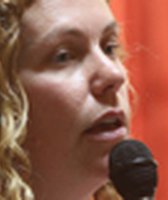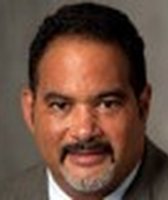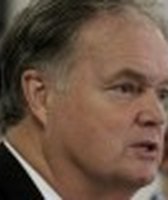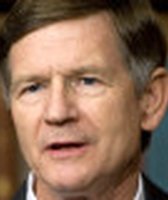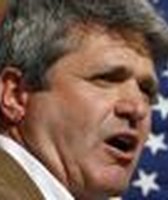Stand up for the facts!
Our only agenda is to publish the truth so you can be an informed participant in democracy.
We need your help.
I would like to contribute
SUMMARY: A building in the Cayman Islands houses thousands of corporations. Sen. Barack Obama calls it "the biggest tax scam on record." But until legislation currently proposed by Obama and others becomes law, it isn't.
The Ugland House looks like an upscale hotel, an angular, colorful building just blocks from the spectacular beaches of Grand Cayman.
But to Barack Obama, it is nothing more than a flophouse for thieves and cheats.
"You've got a building in the Cayman Islands that supposedly houses 12,000 corporations," he said during a Jan. 5, 2008, debate in Manchester, N.H. "That's either the biggest building or the biggest tax scam on record."
Thousands of subsidiaries, many from U.S. corporations, have indeed set up shop — or more precisely, hung a nameplate — at the five-story Ugland House and other financial centers in the Cayman Islands.
They include Coca-Cola, Procter & Gamble, General Motors, Intel, FedEx and Sprint.
But while Obama is right on the general point, calling the practice "the biggest tax scam on record" is questionable. From the quote itself, it's hard to tell if Obama is taking issue with the way companies use the Caymans as a tax shelter, or if he's objecting to the U.S. tax code that makes it possible.
"There's nothing better than to beat up on a tax haven on a beach," said Douglas Shackelford, a professor at the University of North Carolina's business school. "It sounds crooked, but if one really thinks about the facts, I don't see the grounding."
It's not the warm weather drawing corporations, of course. The Caymans do not have a corporate income tax. The United States taxes corporate income at 35 percent, higher than most countries.
As long as profits are not brought back to the United States, or "repatriated," no tax is due. Federal law allows the taxation of "passive income," meaning the interest earned on profits of those subsidiaries. But typically the companies reinvest the money elsewhere, Shackelford said.
Obama is the co-sponsor of legislation that would crack down on offshore activities by corporations and individuals. The Stop Tax Haven Abuse Act would target an estimated $100-billion annually, including $30-billion from corporations.
According to published financial reports, Coca-Cola alone saved $500-million in U.S. taxes in 2003 through foreign subsidiaries. Its Cayman company controls syrup-producing facilities in Ireland. The subsidiary pays taxes in Ireland at 12.5 percent, still far less than in the United States.
Corporations and some scholars argue foreign subsidiaries are necessary to remain competitive in an increasingly global market, and reflect the reality that U.S. taxes are too high.
"The U.S. is really out of step with the world with its tax policies," said Gary Hufbauer, a tax expert at the Institute for International Economics in Washington, D.C.
"It may very well be legal, but that's an argument for changing the law," countered Michael McIntyre, a law professor at Wayne State University in Michigan who has studied tax havens. "Income should be taxed where it's earned. It's good Obama is trying to fix that."
But even McIntyre finds Obama's rhetoric a bit much. "Scam has an implication of fraud, and if they are doing it in the Caymans, it's more avoidance than fraud."
There are more apparent violations, however.
Experts say some drug companies have used foreign subsidiaries to manufacture pills and sell them back to the main company at inflated prices, a practice known as transfer pricing. That keeps the profits in a foreign company and subject to less tax. And there is a growing practice of individuals using offshore accounts to avoid taxes.
Obama is not the first politician to focus on tax havens. In 2004, John Kerry took a similar approach. Hillary Rodham Clinton and John Edwards, Obama's chief rivals for the Democratic nomination, have also invoked the issue in the campaign.
But experts say any attempts at reform, while perhaps worthwhile, will not lead to a honeypot for domestic initiatives.
"There's absolutely no question that there's a lot of international tax avoidance," said Eric Toder, an expert with the nonpartisan Urban Institute in Washington, D.C. "But I would be skeptical of any politician who is promising to get a lot of revenue."
Our Sources
United States General Accounting Office, International Taxation: Information on federal contractors with offshore subsidiaries," February 2004
Press release, Levin, Coleman, Obama Introduce Stop Tax Haven Abuse Act , Feb. 17, 2007
Bloomberg Markets, The $150-billion shell game, by David Evans, August 2004
New York Times, Offshore Tax Breaks Lure Money Managers, by Lynnley Browning, July 1, 2007
Los Angeles, Times, "Trouble coming for Cayman tax paradise?" by Carol J. Williams, May 15, 2007
Interview with Gary Hufbauer, a tax expert at the Institute for International Economics in Washington, D.C,
Interview with Michael McIntyre, a law professor at Wayne State University in Michigan
Interview with Eric Toder, an expert with the nonpartisan Urban Institute in Washington, D.C.
Interview with Douglas Shackelford, a professor at the University of North Carolina's business school









